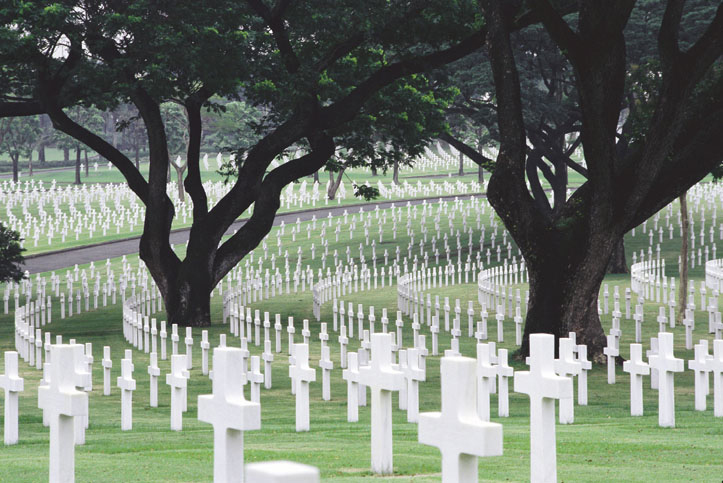National cemetery is a burial place for men and women who served in the armed forces of the United States. Veterans are eligible to be buried in a national cemetery unless they received a dishonorable discharge. In addition, the spouses and dependent children of these veterans may be buried in national cemeteries. The U.S. government maintains more than 170 national cemeteries throughout the United States and Puerto Rico, as well as 26 military cemeteries in other countries.

Four government agencies operate the national cemeteries. The Department of Veterans Affairs maintains 155 of the cemeteries. The National Park Service is responsible for 14 national cemeteries that are part of historic sites. The Department of the Army operates 2 cemeteries—Arlington National Cemetery in Arlington, Virginia, and Soldiers’ and Airmen’s Home National Cemetery in Washington, D.C. The American Battle Monuments Commission maintains all U.S. military cemeteries outside the United States and its possessions.
The Department of Veterans Affairs provides headstones and markers for all graves in national cemeteries and for all graves of veterans that do not have them. These graves include those of Civil War soldiers.
The national cemetery system was established in 1862, during the American Civil War. That year, Congress granted President Abraham Lincoln permission to establish cemeteries for Union Army veterans.
One of the best-known national cemeteries operated by the National Park Service is in Gettysburg, Pennsylvania. A crucial Civil War battle was fought in Gettysburg in July 1863. On November 19 that year, Lincoln delivered his Gettysburg Address at a ceremony dedicating part of the battlefield as a cemetery. The other historic cemeteries operated by the National Park Service are Andersonville in Georgia; Andrew Johnson, Fort Donelson, Shiloh, and Stones River in Tennessee; Antietam in Maryland; Battleground in Washington, D.C.; Chalmette in Louisiana; Custer at Little Bighorn Battlefield National Monument in Montana; Fredericksburg, Poplar Grove, and Yorktown in Virginia; and Vicksburg in Mississippi.
See also American Battle Monuments Commission; Arlington National Cemetery; Little Bighorn Battlefield National Monument.
